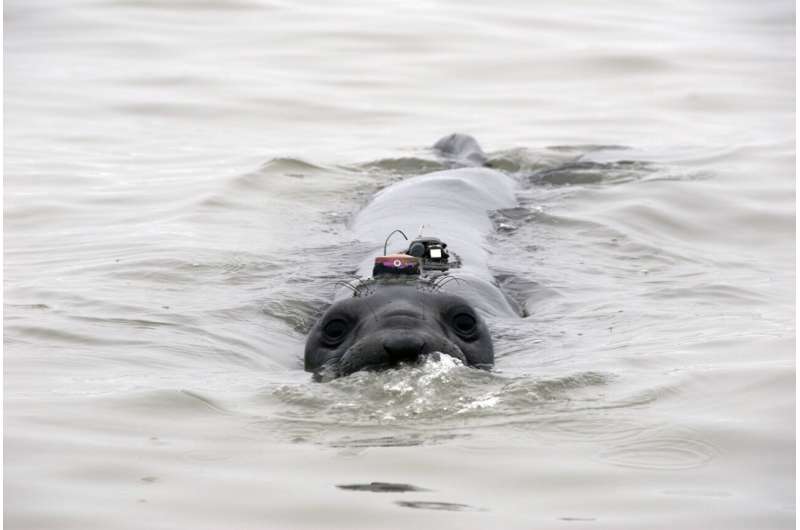September 6, 2023 report
This article has been reviewed according to Science X's editorial process and policies. Editors have highlighted the following attributes while ensuring the content's credibility:
fact-checked
peer-reviewed publication
trusted source
proofread
How short-term heat waves impact apex marine predators

A large team of marine scientists affiliated with a host of institutions across the U.S. has learned how some marine apex predators react to short-term heat waves. In their study, published in the journal Nature Communications, the group analyzed tag data from ocean species, including sharks and whales, to learn more about their behavior during these heat waves.
Marine heat waves are the ocean equivalent of land-based heat waves—temperatures in a part of the ocean experience warmer-than-normal temperatures for a period of time. Marine heat waves have become much more common as climate change has led to warmer ocean temperatures in general.
In this new effort, the research team wondered if it might be possible predict what might happen to certain sea creatures as marine heat waves become even more common. To find out, they obtained data from species that had been tagged during other research projects and compared it with known marine short-term heat waves to see if they could identify any changes in behavior. They also used the data as input to a machine learning application to broaden their findings and also to make predictions about the future behavior of 14 species of apex predators.
In addition to sharks and whales, the team also included tuna, turtles, seabirds and several types of mammals. They were able to track changes in apex marine creature behavior during heat waves that occurred in the northeast Pacific Ocean during the years 2020, 2019, 2015 and 2014.
In looking at the behavior of the sea creatures, the team found variable responses—some suffered while others prospered. Bluefin tuna and blue sharks, for example, were forced to deal with near total loss of their habitat during a 2015 heat wave. On the opposite end of the spectrum, sea lions and elephant seals saw huge habitat gains during a 2019 heat wave. The researchers also found many species moved to cooler areas during heat waves—huge numbers of bluefin, albacore and yellowfin tuna, for example, moved from unusually warm waters off the coast of Mexico in 2014 to cooler waters off the coast of California.
The research team also found much of the activity they observed was highly predictable, though they caution that future heat waves could force different outcomes due to changing conditions in the world's oceans.
More information: Heather Welch et al, Impacts of marine heatwaves on top predator distributions are variable but predictable, Nature Communications (2023). DOI: 10.1038/s41467-023-40849-y
Journal information: Nature Communications
© 2023 Science X Network


















